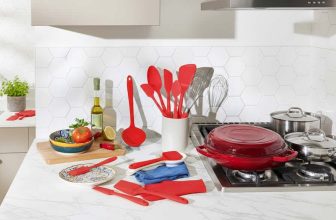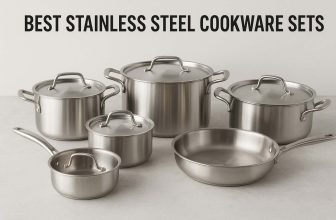How To Choose The Right Types Of Bakeries
Baking bread is fun, tasty, and rewarding. It’s also very labor intensive. However, with the help of technology, baking has become far less labor intensive. There are many types of bakeries. They also need some specialized equipment and tools In this article, I’ll go over the differences between each type of bakery and how they function. Once you understand the differences, you’ll be able to decide which type of bakery will work best for you.
What do you need to know before opening a bakery?
Opening a bakery requires a lot of planning, so it’s important to take some time to think through all the details. The first thing you’ll need is a business plan, which lays out everything from the name of your business to the location where you’ll operate. You’ll also need to decide whether you’ll run the bakery yourself or hire someone else to manage the day-to-day operations.
Commercial Bakery Equipment
-Baking equipment includes bakery oven, dough mixer, dough sheeter, proofers, coolers, scales, and other devices.-Bakery Oven are used to bake food. Ovens vary in size from small countertop models to large industrial units.
-Dough Mixer are used to combine ingredients such as flour, sugar, eggs, butter, milk, and other dry ingredients into a batter or dough. Mixers come in many different sizes and shapes.
-Dough Sheeter are used to measure ingredients and ensure uniformity. Sheeters may be manual or electric.-Proofers are used to let baked goods rise until they reach their final height. Proofing takes place after baking.-Coolers are used to keep baked goods fresh until ready to serve. Coolers can range from simple plastic bins to refrigerated walk-in freezers.-Scales are used to weigh items to ensure accuracy. Scales may be hand operated or electronic.
Select the kind of bakery you’d like to open
If you want to start a bakery, there are many things that need to be considered. For example, if you have an idea for a particular type of bakery, then it is important to know what types of bakeries already exist in your area. If you’re thinking about starting a bakery, here are some options to consider:

1. Traditional bakeries (Retail bakery & Wholesale bakery)Retail bakeries
If you don’t have access to a large quantity of raw materials, then you’re better off setting up shop as a retail bakery. Retail bakeries typically sell smaller amounts of doughnuts, muffins, cookies, pies, cakes, pastries, and other baked goods. Because these items are sold individually, retailers must prepare each item one at a time. This means that they need to have plenty of room to work, and they can’t rely on refrigerators to store their inventory. Instead, they need to maintain an adequate supply of cold storage units.
2. Wholesale bakeries
If you want to open a wholesale bakery, then you’ll need to find a place that sells large quantities of raw materials. Many bakeries use bulk bins to store flour, sugar, and other ingredients. These bins usually contain enough material to last several days, but you might need to order additional supplies once you begin operating.You’ll also need space to store the finished products. Most wholesale bakeries keep their baked goods in refrigerated storage units called walk-in coolers. These coolers allow customers to pick up freshly baked goods without having to wait in line.
3. Bakery café
A bakery café offers both baked goods and coffee drinks. Most bakery cafés are located inside malls or shopping centers. Many bakery cafés have their own cafes, while others work as an extension of another restaurant.
4. Bakery food truck
A bakery food truck operates on a similar model to a restaurant. Customers order food from the menu, but instead of eating in a dining room, they eat on the go. Food trucks are popular among millennials who enjoy having a casual meal while traveling.
5. Wedding bakeries (Wedding cakes)
The wedding cake industry is one of the most lucrative industries in the world. It generates $30 billion annually worldwide, and it’s expected to grow to $50 billion by 2020. This means there are plenty of opportunities for new bakers to enter this market.You could choose to specialize in wedding cakes, or you could decide to create a variety of sweet treats for weddings and special events. You could even combine the two options and become a full-service wedding cake business.
Conclusion
In conclusion, choosing the right type of bakery for your business is an incredibly important decision. When you choose the wrong one, you could end up wasting a ton of money and time. On the other hand, if you pick the right one, you’ll be able to save a lot of money and increase your profits significantly.To help you decide which type of bakery is best suited for your business, here are a few questions that you should ask yourself: What kind of products do you want to sell? What types of customers do you want to attract? How much space do you have available? Do you want to focus on wholesale or retail sales? Are you planning to expand your business in the future?Once you know these answers, you can begin to narrow down your options. For example, if you plan to sell wholesale, you might want to look into bakeries that specialize in wholesale breads and pastries. These kinds of bakeries often have large production facilities and offer a wide variety of products. They’re perfect for someone who wants to grow their business quickly. On the other hand, if your goal is to sell retail, you might want to check out bakeries that specialize in retail baked goods. These bakeries usually have smaller production facilities and offer fewer varieties of products. They’re ideal for someone who doesn’t want to spend too much time working on their business.
Also Read
Thanks for reading! If you enjoyed reading this article, you may also enjoy these related articles: How to Make Perfect Bagels
Conveyor Belt Solutions for Streamlining Bakery Operations
 Conveyor belts are an essential part of most bakery operations. They help to streamline the baking process by allowing for a more efficient and organized workflow. There are many different types of conveyor belts available on the market, and it is important to choose the right one for your specific needs.
Conveyor belts are an essential part of most bakery operations. They help to streamline the baking process by allowing for a more efficient and organized workflow. There are many different types of conveyor belts available on the market, and it is important to choose the right one for your specific needs.
The most common type of conveyor belt used in bakeries is the flat belt conveyor. This type of conveyor is simple and easy to use, making it a popular choice for many operations. Flat belt conveyors can be used to move product from one area to another, as well as to transport product through different stages of the baking process.
Another type of conveyor belt commonly used in bakeries is the chain-driven conveyor belt. This type of belt is more durable than a flat belt and can handle heavier loads. Chain-driven conveyors are typically used to move product from one stage of the baking process to another.
When choosing a conveyor belt for your bakery, it is important to consider the specific needs of your operation. Factors such as the size and weight of your products, as well as the desired speed and capacity, will all play a role in determining which type of conveyor belt is best suited for your needs.
Different Types of Conveyor Belts Used in Bakery Settings
The type of conveyor belt used in a bakery setting depends on the specific needs of the operation. Common types of conveyor belts used in bakeries include:
-Bakery Conveyor Belt: This type of conveyor belt is specifically designed for use in bakeries. It is typically made from food grade materials and features a smooth surface to prevent sticking or catching of baked goods.
-PVC Conveyor Belt: PVC conveyor belts are commonly used in food processing and packaging applications. They are durable and easy to clean, making them ideal for use in bakery settings.
-Polyurethane Conveyor Belt: Polyurethane conveyor belts are another option for bakeries. They offer good resistance to oils and chemicals, making them ideal for use in environments where there is potential for contact with these substances.
Common Issues and Solutions When Using a Conveyor Belt System
If you’re using a conveyor belt system in your bakery, there are a few common issues that can arise. Here are some solutions to help keep your operation running smoothly:
– If your conveyor belt is slipping, it could be due to a problem with the belt itself or with the pulleys. Try cleaning the belt and pulleys with soap and water to see if that helps. If not, you may need to replace the belt.
– If your conveyor belt is moving too slowly, it could be due to an issue with the motor or drive system. Try adjusting the speed settings on the motor or driveshaft. If that doesn’t work, you may need to have a technician take a look at the system.
– If your conveyor belt is moving too fast, it could be because of an issue with the tracking. Try readjusting the tracking on the rollers. If that doesn’t work, you may need to replace one or more of the rollers.








